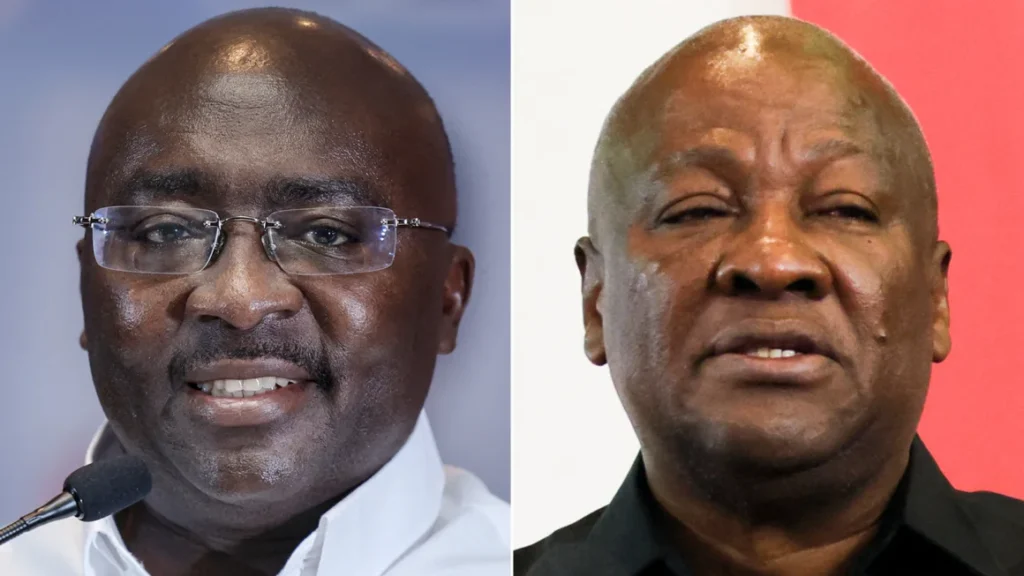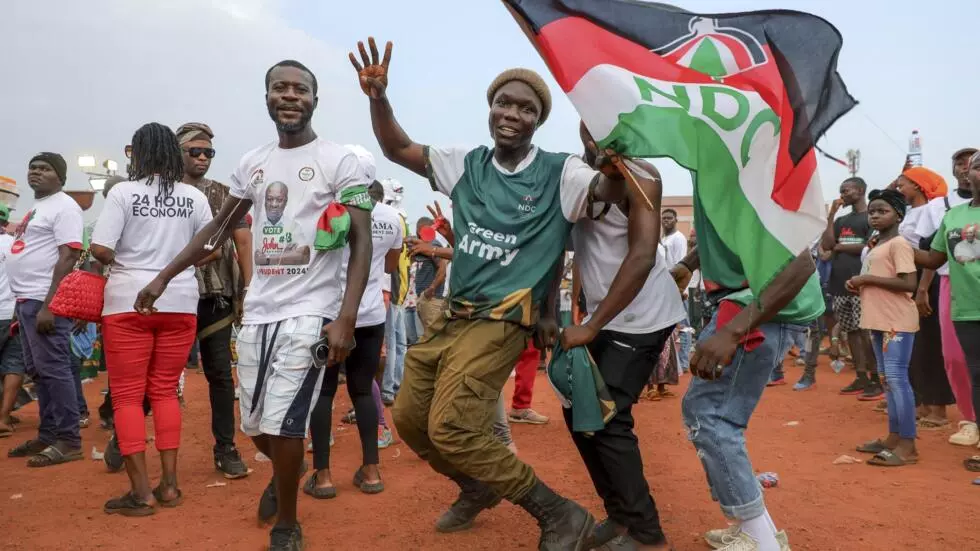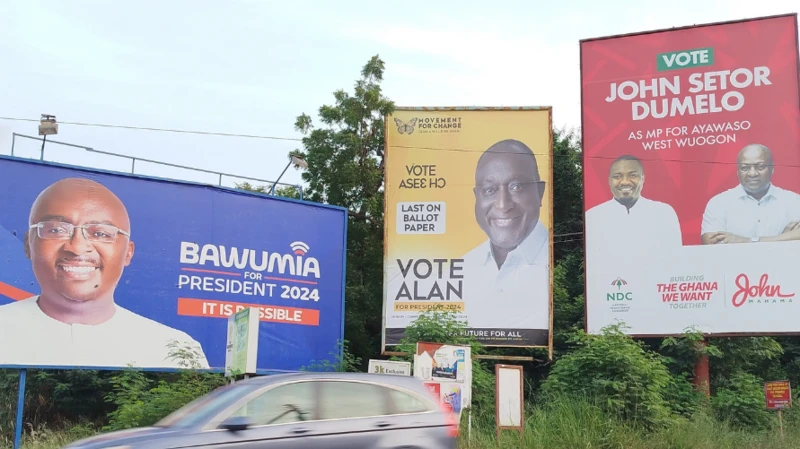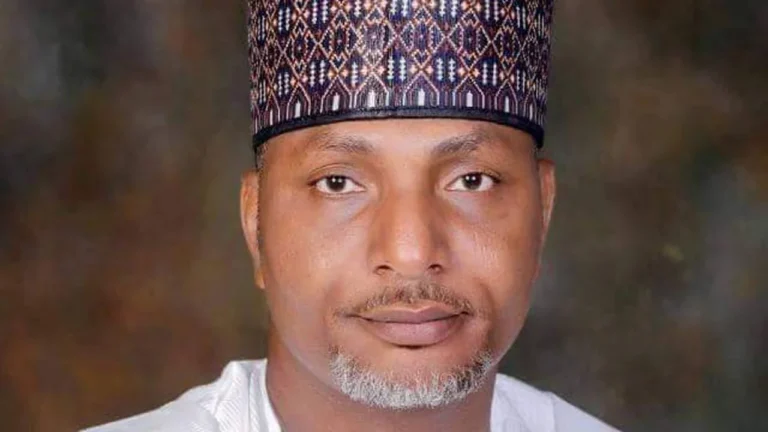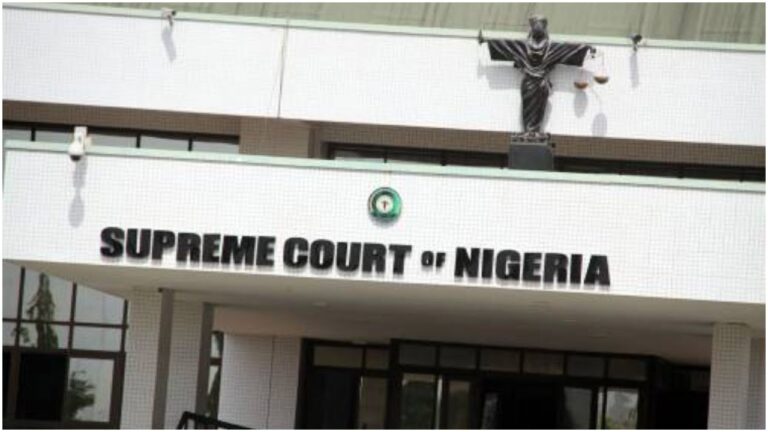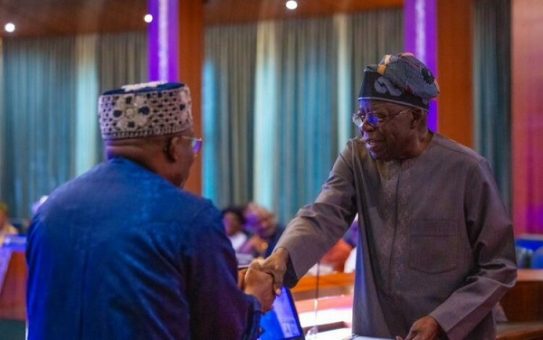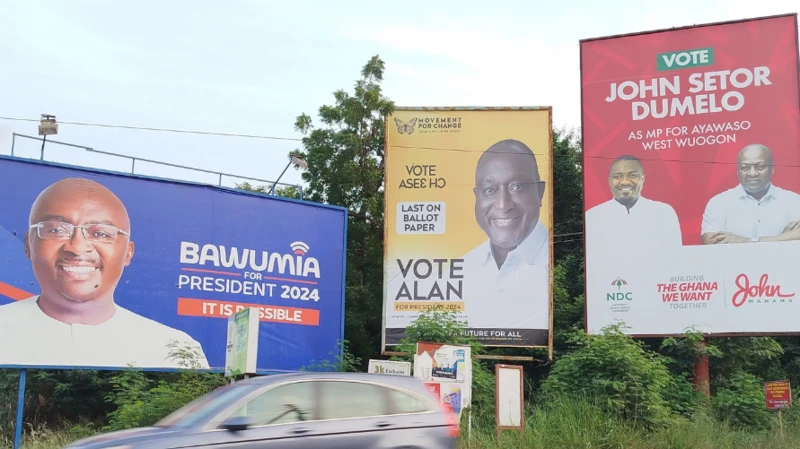
A total number of 18,774,159 Ghanaians are eligible to vote today, Saturday for the new president who will lead Ghana for the next four years.
Thefrontrank reports that eleven candidates are vying for the job, but the battle for the top job is between Vice President Mahamadu Bawumia, from the ruling New Patriotic Party (NPP), and John Dramani Mahama, from the National Democratic Congress (NDC), who served as Ghana’s president between 2013-2017.
Mahama is making his third attempt at the presidency. In 2016 and 2020, he lost to outgoing President Nana Akufo-Addo, who has served the maximum two terms in office.
Akufo-Addos deputy, Bawumia, hopes to extend the ruling party’s hold on power in this year’s election.
Ghana’s electoral commission has come under scrutiny from some political parties for lack of transparency. However, the commission’s chairperson, Jean Mensa, has pledged peaceful and credible polls.
“As a commission, I am pleased to note that we have walked the talk of peace mindful of the fact that attaining peaceful electoral outcome would depend on our actions,” Mensa said. Mensa added that the commission had consciously operated and carried out activities in a manner that would ensure peace before, during and after the election.
A recent policy by the Electoral Commission to limit media monitoring of the collation of election results sparked outrage. The commission has now decided to reconsider that decision.
“As a commission, I assure you that we would continue to apply these ingredients of transparency, responsiveness and inclusiveness in all our activities through to the election day and beyond,” Mensa said.
Thefrontrank reports that all 275 seats in Ghana’s Parliament are also up for election on Saturday. Voting will occur nationwide at over 40,000 polling centers from 6 a.m. to 5 p.m. local time.
The winner of the presidential election must secure a majority of 50% plus one vote. There will be a second round of voting if no candidate secures the required threshold to win the first round.
Observers say politicians must avoid taking voters for granted. “Mostly it is about the vote. They either neglect the systemic issues that are already there with the people and try to do this or implement or commission projects to show that they are still with them [voters],” Dr. Ibrahim Mohammed Gadafi, a political analyst, said.
He said voters have the final say in deciding who to vote for if politicians convince them with suitable policies.
Both Bawumia and Mahama have focused their campaigns on Ghana’s economic recovery, which has been a significant thorn in the outgoing Akufo-Addo administration.
Ghana is working with a programme run by the International Monetary Fund to help restore its economy. Due to years of accumulated borrowing, it has defaulted on most of its external debt, amounting to $30 billion (€28 billion).
Bawumia, an economist and former central banker, is promising digital innovation policies as key solutions to Ghana’s economic woes.
“All the youth, we need jobs. I am going to give 1 million youths digital skills in Ghana,” Bawumia pledged at a campaign rally in the southeastern Volta region. “Everybody, even if you are a school dropout, we can give you digital skills.”
Mahama has also been trumpeting his party’s 24-hour economic policy, which he says would unlock Ghana’s economic potential.
“Despite the president and vice president claiming to have created over 2 million jobs, I ask where are these jobs?” he told supporters at one of his campaign rallies in the Ahafo region, labeling his opponent’s claim as mere rhetoric aimed at winning votes. “That is why we are advocating for a 24-hour economy policy to create new job opportunities.”
Elections in Ghana have mainly been peaceful, and observers don’t expect that to change this weekend.
The presidential aspirants have already signed a peace pact, pledging their commitment to accept the election outcome.
“We hope that the deliberations here would actually facilitate us going through a peaceful election under the rule of law and being able to launch a new phase of amending our constitutions, strengthening our institutions as both parties have done by stating in their manifestos would come to fruition through consensus building,” Emmanuel Akwettey, a governance expert, said at a ceremony to sign the peace pact.
In the run-up to the election, the NDC opposition party, which Mahama leads, had rejected calls to sign a peace pact, citing the failure of the National Peace Council (NPC) to seek justice for opposition supporters killed during the 2020 election. However, Mahama’s presence at the signing ceremony brought relief and was commended by analysts.
“I pledge my personal commitment and that of my party to the sustenance of Ghana’s peace. It is all well and good for us to commit to peace before the 2024 election would come to not or be undermined if there is mistrust and insincerity. Let us work together to create an environment that is conducive for free, fair and peaceful election,” Mahama said.
Bawumia has equally pledged peace.
“The signing of the 2024 presidential peace pact is profoundly significant The stakes are always high, but we have never turned our backs on democracy because that is the path we have chosen for ourselves and it is the right way to go. My hope is that we would come out of this election stronger as a nation,” Bawumia said.
